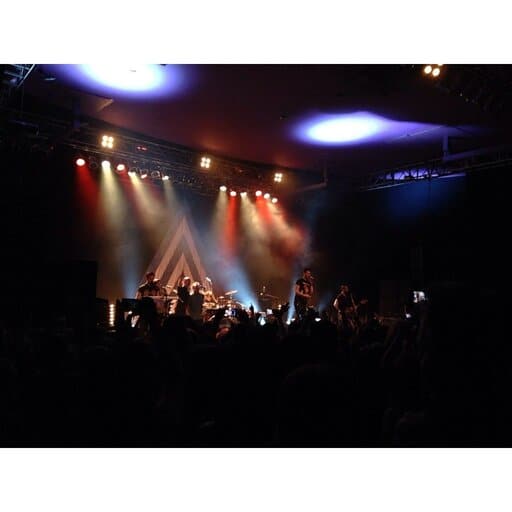How To Work With Agents And Promoters In A Live Streaming World
Musicians and the entire music industry are scrambling to understand the wild wild west of live streaming. As each finds their own path forward, it’s important that they include all of the key players that drive live music.
By Melissa Garcia of Collective Entertainment
From day one of this pandemic, I, like many artist managers out there, have been working almost nonstop to navigate around the changes and uncertainty that lie ahead for our artists. The roller coaster ride that has been the last few months was stressful, to say the least. And while all this uncertainty leads to stress, anxiety, and maybe even depression, our job is to push through to find solutions not only for our artists but also for ourselves.
On the one hand, it can feel almost like doomsday. On the other, I think we can agree that we’re lucky in that our access to technology, and most importantly, to the fans, is unprecedented within our industry. I’m a firm believer that the music industry is resilient. It’ll change and morph and evolve. We’re seeing it happen as we speak. Numerous artists are resorting to live streaming and connecting with fans on platforms they’ve never used before (e.g. Twitch, TikTok, StageIt, NoonChorus, etc.). Some artists, like my client, Fox Stevenson, have seen growth in streaming due to an increase in engagement online.
Even though we’re finding ways for artists to keep moving forward and maintain their careers, the live industry is left behind. We’re seeing reputable venues shutting down (Great Scott in Boston for example). The main revenue stream for our agency partners has all but diminished.
The other day one of my client’s agents emailed me asking my thoughts on how agents can play a role in the live streaming world. It was a great question and something that we all need to really talk about.
“The live industry is getting left behind and it’s important that we work together to come up with solutions.”
An agent’s main role is to work with promoters, venues, and festivals to book gigs. For their work, they receive a commission based on the artist’s pay. So if the only shows that are happening are live streams, what does that mean for them? If an artist can put on their own live stream concert, where can an agent or even a promoter fit into this equation?

Is there money in streaming?
Absolutely. Fox Stevenson streams regularly on Twitch and receives direct contributions from fans. (The highest single donation he received was $3,000 USD from a fan!). Another client, TORRES, streamed live on Instagram and promoted her PayPal, Venmo, and Patreon accounts.
Fans are spending money on their favorite artists. They’re buying merch, subscribing to Patreon, and tuning into these streams.
We’re also seeing artists doing ticketed live streams. NoonChorus, for example, makes contributing to artists seamless. Not only can you buy a ticket, but links to the artist’s PayPal, Venmo, and any additional links are right on the streaming page.
Live streaming is an opportunity to not only create a revenue stream, but to offer: VIP ticket packages to a limited number of fans where they can request songs or ask questions, limited edition merch, listening parties, and more.
The fact of the matter is that live streaming, whether it’s a house show or Q&A with fans, is one of the best ways artists can stay engaged with their fanbase.

Live Music: Helping create new fans one gig at a time
I never considered myself a fan of Twenty One Pilots. Then I saw them at SXSW in 2012 and my mind was blown. I decided to see them again that week, and saw them 3 more times in NYC. Live concerts have always been a great way to gain new fans. Perform at a festival to an audience of thousands of people who have never seen you play. Open for a band that has listeners you want to reach. Join a friend at a local venue to see an artist you’ve never heard of before. Now you’re a fan.
Concerts have this innate way of creating a special fan experience and is easily one of the best ways to convert someone into a fan.
How do we make new fans from streaming?
I’m curious to know what other artist teams are seeing, but it seems that for most streamed shows, artists are reaching audiences that are already following them.
The Internet is oversaturated with almost every single artist doing a live stream. There’s a lot of competition. Some artists are limited as far as sound quality is concerned when it comes to a live stream. Moreover, unless you live together, bands are separated due to social distancing and are unable to perform together.
“there are ways artists can make new fans right now”
Fortunately, there are ways artists can make new fans right now. You can “open” for another artist and then stick around the chatroom to engage with the fans as you watch the “headliner” performer. You can do a live Q&A with each other or with a different member of your band where fans can also take part in the conversation. An artist can also make a surprise appearance on someone else’s stream, which is always a great way to get fans excited and curious.
Beyond these ideas, in order for artists to reach new listeners, we need to come together and collaborate not just within the industry, but also beyond.
That being said, I’ve put together some ideas that agents can start exploring in order to find revenue streams not only for their artists, but for themselves. While it’s easy to cut out the middle person by artists organizing live streams themselves, it should not deter an agent from seeking out other opportunities that will otherwise be missed by artist teams. That is essentially what they bring to the table when helping book live shows.
Idea #1: Curated Virtual Events
Trivecta recently performed for an event called Dreamworld, that reached 5mil+ viewers over 3 days. The fundraising event raised $45k for charity. Trivecta alone reached 7k+ people with his performance.
Although this was an unpaid event, the potential for him to reach an audience beyond his current following is invaluable. Since the pandemic, he’s participated in 3 virtual festivals. These performances plus his efforts to engage with fans have resulted in a steady growth of new fans across his social media platforms.
We’ll continue to see more and more virtual festivals curated by large and small entities as the summer progresses.
Idea #2: Branded Partnerships
This is something I haven’t seen as often as I’d expect, especially considering how festivals are turning to online streaming and seeing success with it.
I could see a brand taking more of a promoter approach in a lot of ways. Whether a brand or a promoter, I’d like to see what else they can bring to the table in terms of ensuring it’s a high quality stream. We’re mostly seeing people in their homes, but I think what we’re lacking is a makeshift stage with good lighting or some other efforts in terms of production. Or even adding visual effects in the background and multiple camera angles.
TORRES recently did a live stream on NoonChorus and with the help of her girlfriend and videographer friend, was able to create some DIY stage designs (mood lighting with candles and black lights) as well as costume changes. The result was a unique streaming experience that the fans enjoyed.
On a different level, we’re seeing charities and organizations hold events by curating a list of artists to perform. We’re also seeing entities such as Amazon Music partnering with artists to curate events and broadcast them on the company’s Twitch.
I’d love to see smaller companies, those with niche markets and a strong online presence, to consider partnering with musicians whether to put on their own version of an online event or to help promote their products by offering affiliate links or discounts that financially incentivizes artists. Not only does the company tap into these artists’ fan bases, but the artists are also exposed to an audience beyond their current fans.

Idea #3: Let promoters and venues do what they do best – PROMOTE!
First, why should an artist give up any of their ticket sales when they can cut the middle person out of the equation and self-promote?
It comes down to what new fans promoters or outside opportunities can bring to the table (whether that’s partnering with a venue or a brand that can expand exposure).
How do we connect this with the agency world in a way that all parties benefit? And how do we connect with promoters to maximize reach & sales in specific markets? (This was one of the questions I received in speaking to a client’s agent.)
When working on a local level, it makes sense to work with a promoter/venue if there’s an upcoming date with the artist on the books or if you know there will be one eventually (suffice it to say, who knows when live shows are making a comeback). That way you can use the live stream to also promote the concert.
If you’re working with multiple promoters to push one ticketed live stream, use affiliate links or promo codes to track sales. That way, an artist can justify giving a split of the profits with the promoter. And the artist can take advantage of the resources the promoter brings to the table.
Possible Solutions for Agents
With all these ideas in mind (and I’m sure there are plenty more this article doesn’t cover), an agent will have to evolve their role more to continue adding value to an artist’s career.
Agents can use these various ideas, mold them how they see will fit into an artist’s overall strategy, and find opportunities beyond what the artist or their team can bring to the table. They can actively seek out brand partnerships. They can help leverage their relationship with promoters to maximize exposure and sales for ticketed events.
Regardless, agencies and the live industry are vital facets to the music world. Let’s find ways to make sure they aren’t left behind.